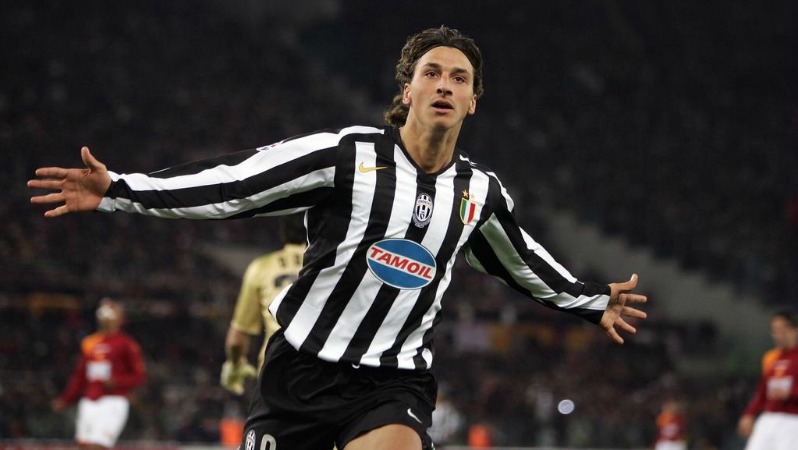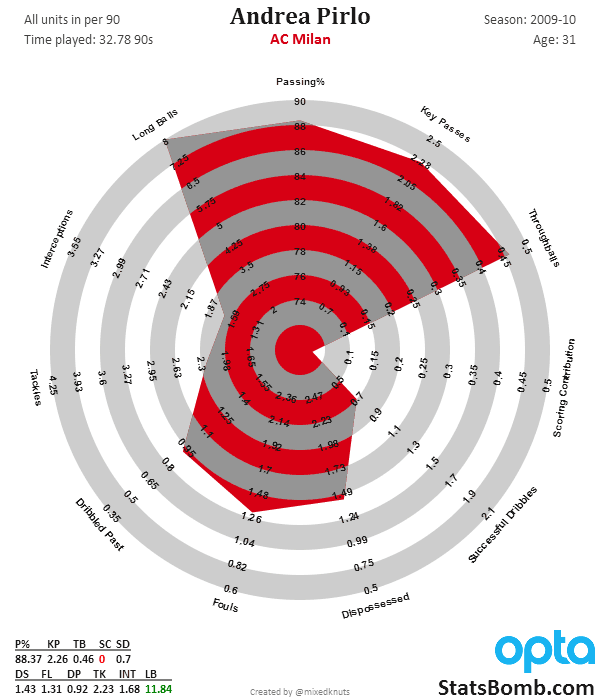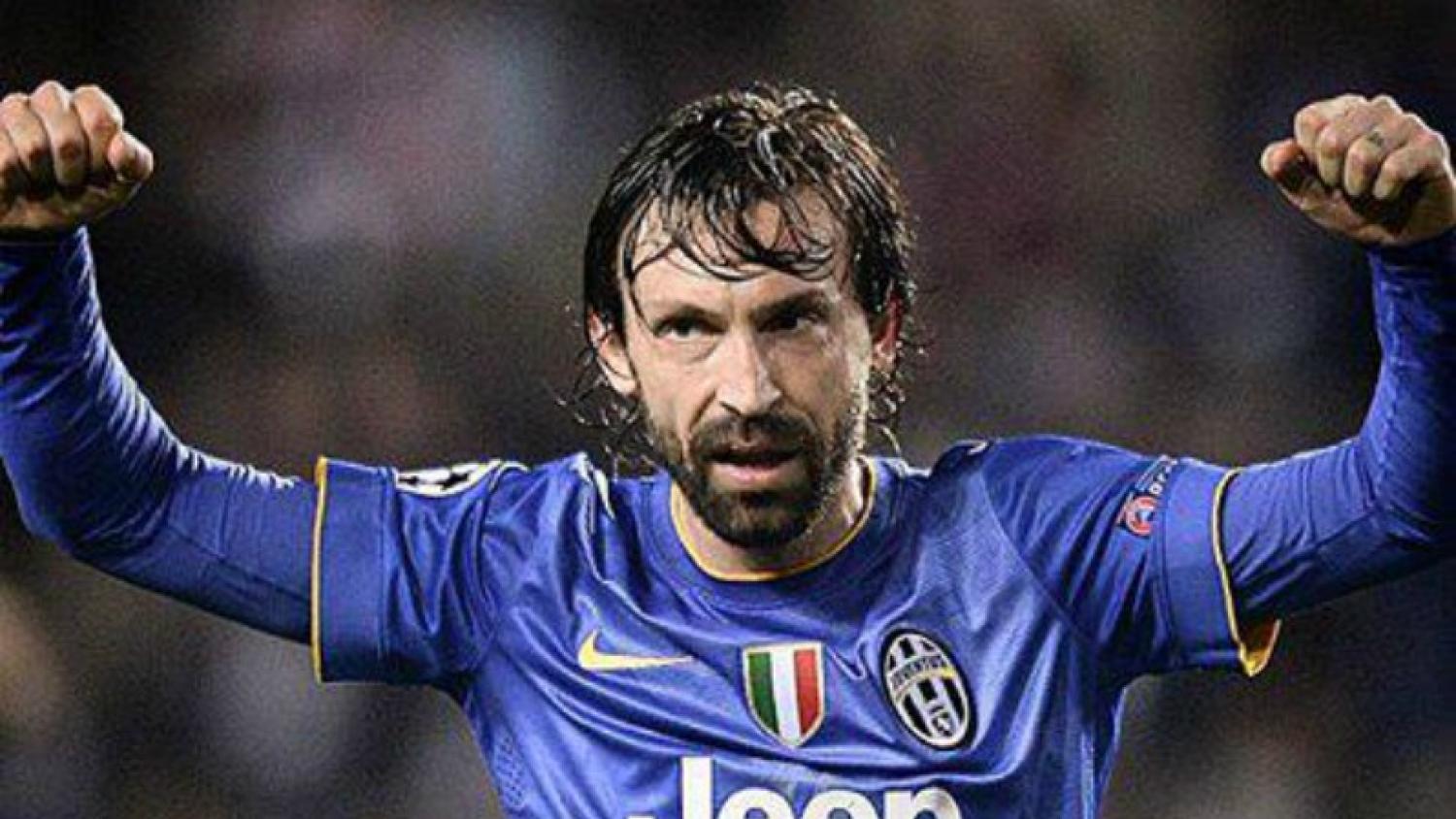Sometimes world soccer feels like Penrose stairs. Shitgobs of money get passed around between a few fat-pocketed clubs, players and managers follow the cash, and it seems like nothing will ever change. It appears different, but it's the same. Around and around and around and around. Bayern Munich, Barcelona, Real Madrid, and Juventus will always be the last four in the Champions League, and then the season will end and we’ll do it all again in the fall.
…wait, Juventus?
Right. After a 1-0 aggregate win over Monaco, Juventus qualified for the semifinals of the Champions League. Somehow that's surprising, because as money buys big clubs consistency, the Italian giants have been locked in a rock-tour bender for a dozen years.
Through the mid-1990s and early 2000s, with Marcello Lippi and Carlo Ancelotti as managers, Juventus celebrated nearly a full decade of excellence. They won five Serie A titles in nine seasons and finished second three more times. A 4-2 penalties win over Ajax in 1995 secured the club’s second European championship. They were a validated power, one of a handful of the world's most decorated clubs, and that stretch of success culminated in a 2003 Champions League final appearance; it was their fourth trip in eight years.
After beating Real Madrid to advance, Juventus played the final against AC Milan, a team that employed Ancelotti and also Andrea Pirlo, who had just turned 24. More than 60,000 Italians filled Old Trafford in Manchester with vibrant, foreign noise - the British version of the Halloween movies, presumably - but the boisterous crowd couldn't herd the ball across the line.
Milan had a goal overturned early in the match, Antonio Conte clanged the crossbar for Juve with a diving header in the second half, Pirlo smacked the post about 10 minutes later, and that was it. The tepid contest finished at nils. In penalties, Milan beat Gigi Buffon three times to win the title.
Juventus floundered to third place domestically in 2003-04, and Lippi left after the season to become Italy's national team manager. The club hired former player Fabio Capello as his replacement, and he signed Zlatan Ibrahimovich from Ajax for 16 million in 2004. As far as splashes go, that's a hippo cannonball in a backyard kiddie pool. Ibra scored 26 goals in 82 appearances, and Juventus won Serie A back-to-back before all of it - absolutely all of it - came down in a wreck.

Photo: MoraPicos | Twitter
Juventus were implicated in the famous Calciopoli match-fixing scandal in 2006. Board members were jailed. The team was stripped of the titles it won under Capello, relegated to Serie B, and kicked out of the following year’s Champions League. All fines and financial losses considered, from what I could find, the club leaked between £40-60 million.
Then a real howler: Interim manager Didier Deschamps told the remaining players they weren’t allowed to leave. Can you imagine? "Hey, fellas, we bet on a bunch of games and got evicted from the league we’ve won 27 times, but, ha ha ha, you have to spend a year of your primes here playing in Rimini and Frosinone instead of Milan, Rome, Madrid, or Barcelona."
That obviously and hilariously didn’t work, and most high-profile players left the team for other big clubs:
Gianluca Zambrotta and Lilian Thuram moved to Barcelona. Fabio Cannavaro and Emerson signed with Real Madrid. Patrick Vieira transfered to Inter. Ibrahimovich threatened to sue Juventus if he was forced to stay and play in Serie B. The club eventually relented and the star striker went to play for Inter. There, he scored 57 goals in 88 appearances, won three straight league titles and two Serie A “Footballer Of The Year” awards. Good job, good effort, Juve.
So the bottom fell out during the scandal, and on top of losing all that, Juventus was docked nine points to start the Serie B campaign. They won the league anyway - Alessandro Del Piero scored 21 goals to top all other scorers - and shot right back up to the top flight.
Between 2007 and 2011, a bunch of dudes managed Juventus:
-Claudio Ranieri (less than two seasons, fired)
-Ciro Ferrara (less than a season, fired)
-Alberto Zaccheroni (interim, fired along with the sporting director when upper management changed)
-Luigi Delneri (one season, fired)
The team finished as high as second in that span but largely underachieved under huge expectations. It was a meandering run for such a proud club.
A few things happened in 2011 that helped change the tide. Juventus hired Antonio Conte - the guy who hit the piping with the diving header in the ’03 final - to manage the club, which moved into a new stadium at the same time.
And then, there was Andrea Pirlo.
Milan had chosen not to sign the 32-year-old midfielder, so Juventus got him on a free transfer in 2011. Pirlo is still, in 2015, one of the 10 or 15 best playmakers in the world, so getting him for nothing in 2011 was a Vegas heist without the car chase.
“It’s the signing of the century…I thought God exists because it’s truly embarrassing just how good he is.” - Gigi Buffon, after Pirlo played his first game for Juventus, a 4-1 win over Parma.
I suppose you achieve "legend" status when a coworker says your talent has lifted God's invisibility cloak and outted her as a football fan. "God exists" because Pirlo is Football Jesus, in beard, mane, and spirit.
Maybe you believe Buffon is being overdramatic, that he's adding romance to the simple task of kicking a ball. You're right, of course. It's merely an expressive quote. But then again...
...you can almost see the moment where the ball seems to catch a gust of wind, or when someone tugs it in a different direction toward the upper corner. It does look a bit other-worldly, doesn't it?
In the last few years, as Juventus romps through Serie A, Conte has placed the rest of his extremely talented players in a system that allows for Pirlo to run the show. The wine-swilling midfielder sits back, picks his passes in the slower Italian game, and dominates. He's inevitable. The game slows down around Pirlo, as if it's waiting for him to make up his mind before it reacts; it's like both teams are his orchestra, the music is at a caesura, and only he can give the order to begin again.
Pirlo could actually be an orchestra conductor and it wouldn't be far out of character. He grew that beard when he got to Juventus, became a favorite talking point for American neutrals, "KICK IT AT ME, I DARE YOU," and published a memoir with juicy quotes like this:
“If I look in the mirror when I get up, or before going to bed at night, I see a man of average ugliness. With stubble, an unruly mane of hair, a squint nose, slightly protruding, ears and bags under my eyes. But I also see a man who’s completely happy with the figure staring back at him.”
On-field Pirlo is remarkably consistent, in part because of the players around him and also because Conte's system protects him. He hasn't, as Grantland's Mike Goodman pointed out last year, become - and since disintegrated like - Steven Gerrard.

In a 2014 post entitled "Italy's Andrea Pirlo is old, slow, rarely sprints and is just not the player he was – because he is even better," The Guardian's Jim White described late-career Pirlo perfectly, just by explaining a specific moment of play. A note here: The bracketed part is mine.
"The opposition grew ever more frustrated at their inability to resolve the conundrum [of Pirlo's existence] until Sami Khedira ruptured his knee ligaments, putting himself out of the World Cup, in an attempt to dispossess the Italian. As the German fell to the turf, yelling in pain, Pirlo eased away with the ball, utterly unscathed."
Since his signing four years ago, Juventus bagged three straight Serie A titles and has a fourth on the way - La Vecchia Signora are 14 points clear of second-place Lazio and need just one more point to win the league. Obviously having Buffon, Paul Pogba, Arturo Vidal, and a gaggle of other world-classers helps, but Pirlo makes Juventus go. He's captained the club back from the dragon dungeon of its mid-2000s turmoil.
But all that domestic success - in a weakening Serie A - hasn't led to the sustained European success of its recent glory days. There was the 4-0 aggregate defeat in the 2012-13 quarterfinals against to-be champion Bayern Munich. There was the one-win group stage performance in 2013-14, which sent them down to the drudgery of the Europa League.
And then there was that Europa League, which they were relegated into. If Juve had made it through Fiorentina, and Lyon, and Benfica, they'd have played the final in Turin at their swanky new home stadium. Even after the disappointing Champions League group round, Conte's crew had a perfect stage to announce their relative return to the semi-top of European soccer. Except that didn't happen because Benfica ousted the Zebras 2-1 in the semifinal. Conte resigned two months later. Massimiliano Allegri became Juve's eighth manager in eight years. More bricks were laid in the winding road.
But it wasn't the setback it may have been: Pirlo stabilized the club by reupping for two more seasons, Pogba hasn't been transferred away (yet), and somehow Carlos Tevez's career resurgence has sustained itself - the 31-year-old is on pace for a career best in goals.
(Also, here's what Juventus's team site said about Pirlo when his contract was announced: "For 131 games Andrea Pirlo has been the fulcrum of the side, the intersection through which every move passes. Six thunderbolts have been released from his foot this season, 14 goals in total. In three years he's played his team-mates through on goal 30 times, touching the ball at least once for every minute he's spent on the pitch (11,551 balls played versus his 11,344 minutes in action), with a pass completion rate of over 90%." Now that's a press release.)
Most importantly, Juventus is a Champions League semifinalist for the first time since 2003. Father Fortune has certainly been on their side: They were slotted into one of the weaker groups to start the competition, they drew a limp Dortmund in the round of 16, and they got Monaco instead of Arsenal in the quarterfinals. They're the oddball of the final four, but they're there. Just hanging around. Bidening.

Photo: Weloba_en | Twitter
And their luck may have persisted into the tie with Real Madrid. Gareth Bale and Karim Benzema are hurt, although they're expected to play next week in the first leg. Real are still nipping at Barcelona's heels in La Liga, needing every last point in every last game to catch the leaders, whereas Juventus has everything locked up and can focus solely on the Champions League.
While that's a nice, romantic thought, Juventus is undoubtedly the lesser side. Pogba is injured and might only return for the second leg. Javier Hernandez turned in his best performance of the season for Real in the second leg against Atletico (he was superb from the opening whistle). Madrid still employs the beautiful mug of Cristiano Ronaldo.
The circular world soccer machine is churning, though: The last time Juve played in a UCL semifinal, they had to go through Real; Ancelotti coached the Milan team that beat them in the final; instead of having to play against Pirlo, he now captains their strong side. Around and around and around and around. Juve's the underdog, but they're stronger than they've been in more than a decade, back near the top of European soccer. Although the 12 years between semifinals makes for a great tell-all book, it doesn't much matter how Juventus got here: a few stellar performances away from a final. It's only consequential that they're there, hanging around, and it's important that Pirlo has the baton.



